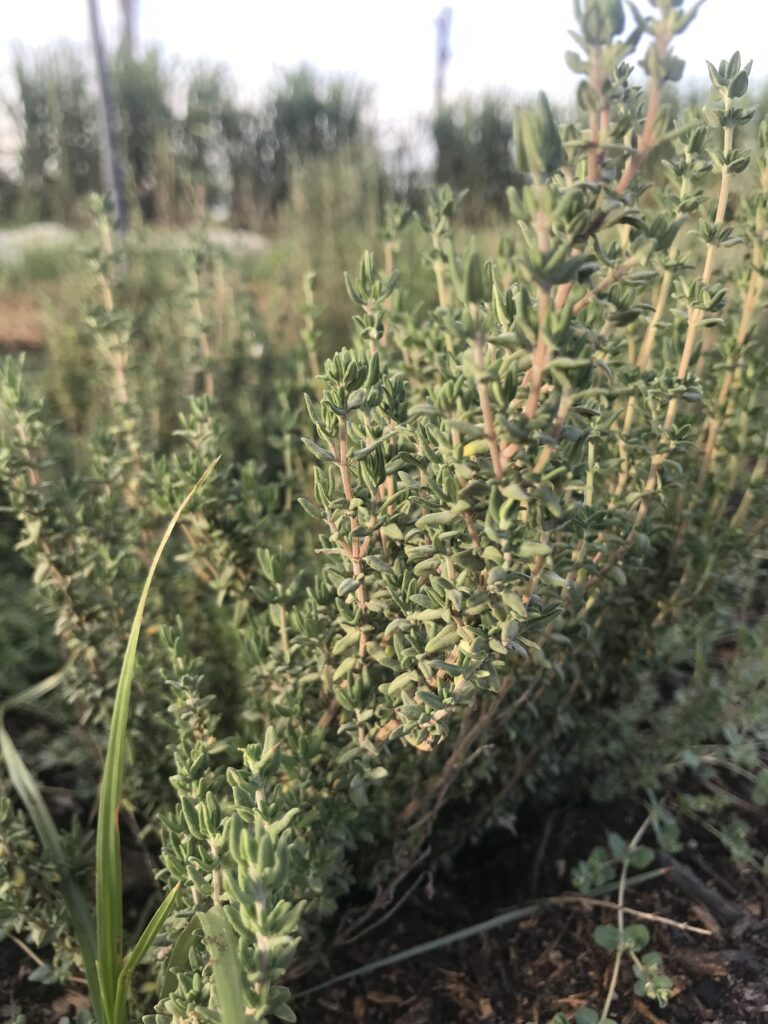Thyme, a member of the mint family, has over 400 sub-species, and has been used medicinally
for thousands of years. For example, Ancient Egyptians used the herb for embalmment, while
the Greeks used it predominantly as incense.
Recent studies of the herb over the past several decades have demonstrated its wide range of
uses—which are quite impressive. One recent study found that use of thyme in tincture-form
fought pimples better than other anti-acne products, such as benzoyl peroxide. Other studies
support that thyme extract boosts the immune system and significantly reduces heart rate,
blood clotting, and cholesterol (in rats). The essential oil of thyme is often used as a natural
cough remedy, and has fungicidal properties that make it an ideal disinfectant, especially in
areas where there might be low concentrations of mold. Additionally, thyme’s antiseptic and
antifungal properties make the essential oil an ideal addition to mouthwash, and can even be
used to make homemade insect repellant (4 drops of thyme essential oil to 1 tsp olive or
coconut oil). As an aromatic/therapeutic herb, thyme is often used to boost feelings of well-
being and elevate mood.
In the United States, thyme is best known for its use as a culinary spice in poultry, fish, and
other meats. Thyme is also a major ingredient in some soups and pasta sauces, such as pesto.
With that said, Fall is the perfect “thyme” to try this delicious Pumpkin Thyme Mac and Cheese
recipe. https://www.yummly.com/recipe/Pumpkin_-thyme-mac-and-cheese-334529?prm-v1
MMmmm, good!
Sources:
https://www.healthline.com/health/health-benefits-of-thyme#Thyme-for-some-good-food
https://www.webmd.com/vitamins/ai/ingredientmono-823/thyme

